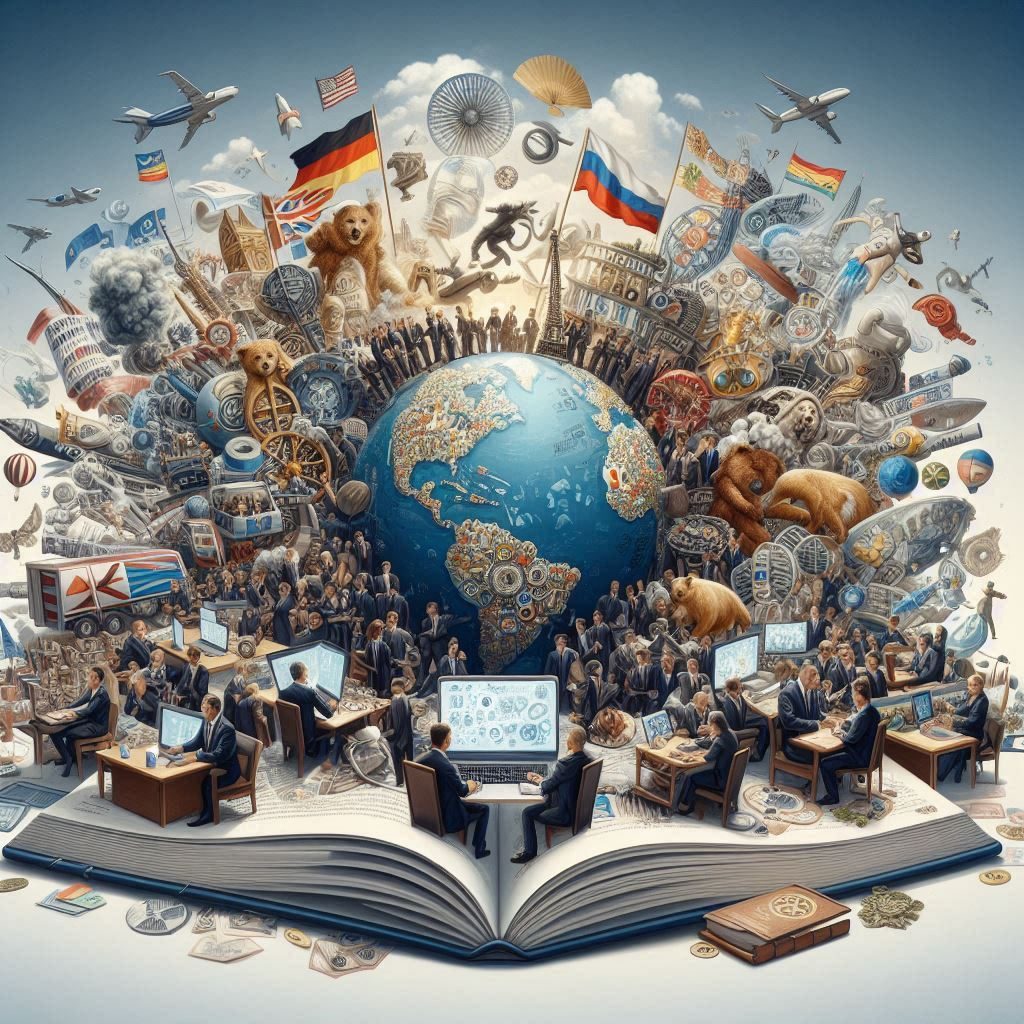The Interplay of Domestic Politics and International Relations Explained
Ever wonder how domestic politics and international relations are intertwined? A government’s decisions within its borders don’t just stay local—they often ripple outward, affecting relationships with other nations. Likewise, international events can profoundly impact a country’s internal policies and political landscape. In this article, we’ll explore how domestic politics and international relations influence each other, breaking down key factors like government policy, trade, diplomacy, and conflict.
Understanding Domestic Politics
What is Domestic Politics?
Domestic politics is everything within a country’s borders regarding governance, policy-making, and the functioning of its political institutions. It involves the choices made by governments and how those choices affect citizens. Think of it as the engine that drives a country’s internal operations—legislation, law enforcement, public services, and economic policies stem from domestic politics.
The Role of Government in Domestic Politics
Governments shape domestic politics through decisions on taxes, education, healthcare, infrastructure, and much more. These decisions often come from elected officials who represent the people’s will, although the extent of public influence can vary depending on the country’s political system. Policies at home, like environmental laws or immigration restrictions, can have international implications.
Political Parties and Public Opinion
In most democracies, political parties play a significant role in shaping domestic politics. They compete to win elections and implement their policy agendas. Public opinion, too, can steer domestic politics. For instance, strong public support for a military intervention abroad might push a government to act internationally, while domestic backlash could lead to a withdrawal from global commitments.
The Core of International Relations
Defining International Relations
International relations (IR) refers to how countries interact with one another. It encompasses diplomacy, trade agreements, alliances, and even conflicts. Essentially, IR is a vast web of relationships that keeps nations connected—or sometimes divided—on the global stage. From peace treaties to trade wars, international relations can either stabilize or destabilize regions worldwide.
Key Actors in International Relations
Governments aren’t the only players in international relations. International organizations, such as the United Nations (UN), and non-state actors, like multinational corporations and non-governmental organizations (NGOs), also shape global dynamics. Countries rely on these entities to address global challenges like climate change, pandemics, and nuclear proliferation.
The Importance of Global Diplomacy
Diplomacy is the art of negotiation between countries. It’s the tool nations use to build alliances, resolve disputes, and promote cooperation. Without diplomacy, the world would be in constant conflict. Countries leverage diplomacy to protect their interests, whether through forming trade partnerships or avoiding armed conflict.
How Domestic Politics Influences International Relations
Policy Decisions on the Global Stage
The policies a government enacts domestically can directly influence its international relationships. For example, a country’s protectionist trade policies may spark tensions with trading partners. Conversely, a country that promotes free trade may strengthen international alliances. In this sense, domestic policy is the foundation for a nation’s international behaviour.
Economic Sanctions and Trade Agreements
Economic decisions at home, such as implementing tariffs or subsidies, can trigger international reactions. Trade agreements, like NAFTA or the European Union’s single market, are prime examples of domestic policies extending their influence beyond borders. Likewise, sanctions imposed due to human rights violations or nuclear development show how a country’s internal politics can disrupt global trade.
War and Peace Decisions
Governments often justify wars based on domestic political needs, such as rallying national support or deflecting from internal issues. On the flip side, domestic peace movements can push governments toward diplomacy over military action. The decision to go to war or pursue peace is a high-stakes area where domestic political interests and international relations collide.
The Reverse: How International Relations Impact Domestic Politics
Economic Globalization and Its Domestic Impact
Globalization has blurred the lines between domestic and international economics. Decisions made by global financial institutions like the World Bank can affect domestic economies, causing shifts in employment, industry, and policy-making. For example, a trade deal might boost a nation’s economy but harm certain domestic industries, leading to political unrest.
International Conflicts and Domestic Stability
Wars and international conflicts often have profound domestic consequences. Refugee crises, economic downturns, or spikes in defence spending due to global conflicts can shake the stability of a country’s political landscape. As seen in the Middle East, international intervention can lead to civil wars and regime changes, shifting domestic politics.
The Role of International Organizations in Domestic Policies
Institutions like the International Monetary Fund (IMF) or the World Trade Organization (WTO) often influence domestic policy. For instance, a country may have to reform its domestic tax policies or labour laws to meet the requirements of international loans or trade agreements. The power of these organizations to influence domestic politics underscores the interconnectedness of global governance.
Case Studies
The United States: Domestic Political Divides and Global Influence
The U.S. provides a clear example of how domestic political divides shape international relations. Shifts in administration, from more interventionist policies under Republican presidents to a more diplomatic approach by Democrats, demonstrate the direct impact of domestic politics on foreign policy. Decisions like the withdrawal from the Paris Climate Agreement or engagement in Iraq stemmed from domestic political agendas.
Brexit: The UK’s Domestic Politics Reshaping International Relations
Brexit, the UK’s exit from the European Union, is a prime example of domestic politics reshaping international relations. Domestic concerns over immigration, sovereignty, and economic control drove the decision to leave the EU. However, the ripple effects of Brexit have impacted trade, diplomacy, and the UK’s standing on the global stage.
China’s Domestic Policies and Global Ambitions
China’s approach to international relations is heavily influenced by its domestic agenda. The Belt and Road Initiative (BRI) reflects China’s domestic need for economic growth and global influence. China seeks to strengthen its international position through infrastructure investments abroad while ensuring domestic financial stability.
Conclusion
In today’s interconnected world, domestic politics and international relations are two sides of the same coin. Policies that begin within a country’s borders can have far-reaching effects globally, while international events can profoundly shape a nation’s political landscape. Understanding this interplay helps grasp the complexity of global politics, showing that no nation operates in isolation. The decisions made by governments—whether about trade, diplomacy, or conflict—are intricately connected to the broader web of international relations.
FAQs
1. How do domestic politics influence international relations?
Domestic politics impact international relations through government policy decisions, trade agreements, and military actions. Political parties and public opinion can shape a nation’s stance globally.
2. How does international relations affect domestic policies?
International relations influence domestic policies through trade agreements, economic globalization, and involvement in international organizations, which can require domestic policy reforms.
3. What is the role of diplomacy in international relations?
Diplomacy allows countries to negotiate, form alliances, and resolve disputes without conflict. It’s essential for maintaining global peace and cooperation.
4. How do economic sanctions affect both domestic and international politics?
Economic sanctions can strain international relations and hurt the domestic economy of the targeted country, often leading to political unrest or policy changes.
5. Can international conflicts destabilize domestic politics?
Yes, international conflicts can lead to domestic instability by causing economic challenges, refugee crises, and shifts in public opinion, which can influence elections and policy-making.


